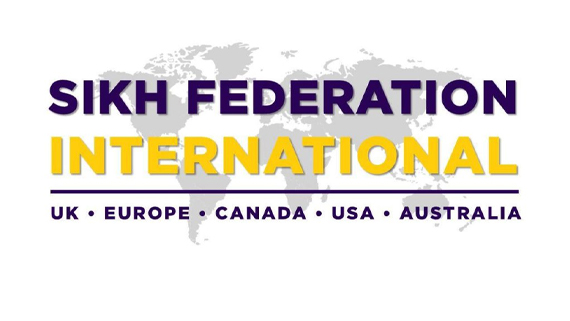New York: The Sikh Federation International, a coalition body of Sikh Federations based in USA, Canada, UK Australia and Europe, has issued a statement saying, “Resolution of diplomatic tensions with India must address Sikh self-determination”.
Sikh Federation International
Full Text of Statement by Sikh Federation International reads as follows: –
Resolution of diplomatic tensions with India must address Sikh self-determination
5 Kattak, Nanakshahi 556 | October 21, 2024
Recent media reports and revelations by the governments of Canada and the US have publicly confirmed that the Indian state has ordered a series of assassinations of Sikh activists and leadership, as well as a generalized wave of coordinated violence across Canada for at least one year. This policy appears to be aimed at eliminating exiled Sikh leadership and diaspora-based advocacy for Khalistan, as well as engaging in a sophisticated psychological operation to manufacture a sense of danger that amplifies India’s disinformation against international policymakers.
Although India’s assassination program first targeted guerrilla commander, Jathedar Harmeet Singh, in January 2020, this strategy reached a climactic point in 2023. Jathedar Parmjit Singh Panjwar, an underground leader of the Sikh liberation struggle since 1988, was assassinated on May 6, 2023. Bhai Hardeep Singh Nijjar, a prominent diaspora-based leader, was assassinated on June 18, 2023. During the same period, Bhai Avtar Singh Khanda was clandestinely killed by Indian operatives while British authorities refused to investigate India’s involvement. Indian agents unsuccessfully attempted to assassinate Gurpatwant Singh Pannun in the USA during the same time span. To this day, Sikh leaders at the forefront of advocating for Khalistan continue to face confirmed threats to their lives throughout the world.
Since the annexation of the Sirkar-i-Khalsa and colonization of Punjab in 1849, the Guru Khalsa Panth (collective of Sikhs around the world) has mobilized to reestablish our sovereignty including the April 1986 declaration to secede from India and establish an independent state, Khalistan. In response, Indian security forces sought to repress this mobilization by rejecting any political settlement on self-determination and instead, used force to crush Sikh dissent militarily in order to maintain political hegemony over the region.
India’s ongoing actions are a clear challenge to the fragile stability in South Asia, and the most basic principles of diplomacy and international relations. India’s increasingly aggressive foreign policy confirms a willingness to violate international law while destabilizing foreign institutions and communities by exporting its repressive approach to political dissent.
Considering its willingness to target Sikh activists and leadership around the world, it is clear that India maintains its latent potential to unleash a similar campaign against Sikh leadership in Punjab once again. The targeting of Sikhs in Punjab in this way has the explosive potential of accelerating conflict and instability in Punjab with dangerous ramifications for the broader region.
In these circumstances, we call on regional and global stakeholders to contribute to ensuring a comprehensive resolution of the underlying tensions. India’s immediate neighbours, as well as global stakeholders with any strategic interest in the region, must engage with all stakeholders, including the Guru Khalsa Panth, to facilitate a lasting resolution to this political conflict. India’s transnational violence has been targeted at exiled Sikh leadership advocating for Khalistan. As a directly affected party to this dispute, India’s violent crimes cannot be addressed solely between the US and India or Canada and India. It is imperative that Sikh representatives are party to any diplomatic resolution of the current issues.
This requires a credible investigation, led by an international body, that will shed light on the details of the assassination program and full accountability for all officials and agencies responsible. Given India’s targeting of exiled leadership of the Khalistan movement, any resolution must address the expression of Sikh self-determination through the establishment of an independent Khalistan as this is a necessary prerequisite to lasting justice, peace, and prosperity in the future of South Asia.
—
Sikh Federation International
Press Office
♦ALSO READ :

